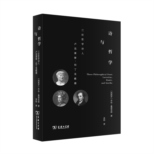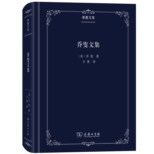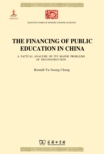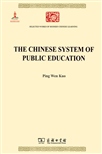显示全部前言
Preface to the Fifth (English) Edition
This novel being one wherein the great campaign of the heroine begins after an event in her experience which has usually been treated as extinguishing her,in the aspect of protagonist at least,and as the virtual ending of her career and hopes,it was quite contrary to avowed conventions that the public should welcome the book,and agree with me in holding that there was something more to be said in fiction than had been said about the shaded side of a well-known catastrophe. But the responsive spirit in which <EM>Tess of the D'Urbervilles</EM> has been received by the readers of England and America would seem to prove that the plan of laying down a story on the lines of tacit opinion,instead of making it to square with the merely vocal formulae of society,is not altogether a wrong one,even when exemplified in so unequal and partial an achievement as the present. For this responsiveness I cannot refrain from expressing my thanks; and my regret is that,in a world where one so often hungers in vain for friendship,where even not to be wilfully misunderstood is felt as a kindness,I shall never meet in person these appreciative readers,male and female,and shake them by the hand.
I include amongst them the reviewers—by far the majority—who have so generously welcomed the tale. Their words show that they like the others have only too largely repaired my defects of narration by their own imaginative intuition.
Nevertheless,though the novel was intended to be neither didactic nor aggressive,but in the scenic parts to be representative simply,and in the contemplative to be oftener charged with impressions than with opinions,there have been objectors both to the matter and to the rendering.
Some of these maintain a conscientious difference of sentiment concerning,among other things,subjects fit for art,and reveal an inability to associate the idea of the title-adjective with any but the licensed and derivative meaning which has resulted to it from the ordinances of civilization. [The original title is Tess of the D'Urbervilles—A Pure Woman.] They thus ignore, not only all Nature's claims,all aesthetic claims on the word,but even the spiritual interpretation afforded by the finest side of Christianity; and drag in,as a vital point,the acts of a woman in her last days of desperation,when all her doings lie outside her normal character. Others dissent on grounds which are intrinsically no more than an assertion that the novel embodies the views of life prevalent at the end of the nineteenth century,and not those of an earlier and simpler generation—an assertion which I can only hope may be well founded. Let me repeat that a novel is an impression,not an argument,and there the matter must rest,as one is reminded by a passage which occurs in the letters of Schiller to Goethe on judges of this class: "They are those who seek only their own ideas in a representation,and prize that which should be as higher than what is. The cause of the dispute,therefore,lies in the very first principles,and it would be utterly impossible to come to an understanding with them." And again "As soon as I observe that any one,when judging of poetical representations,considers anything more important than the inner Necessity and Truth,I have done with him."
In the introductory words to the first edition I suggested the possible advent of the genteel person who would not be able to endure the tone of these pages. That person duly appeared, mostly mixed up with the aforesaid objectors. In another of his forms he felt upset that it was not possible for him to read the book through three times,owing to my not having made that critical effort which "alone can prove the salvation of such an one." In another,he objected to such vulgar articles as the devil's pitchfork,a lodging-house carving-knife,and a shame-bought parasol appearing in a respectable story. In another place he was a gentleman who turned Christian for half an hour the better to express his grief that a disrespectful phrase about the Immortals should have been used,though the same innate gentility compelled him to excuse the author in words of pity that one cannot be too thankful for: "He does but give us of his best." I can assure this great critic that to exclaim illogically against the gods,singular or plural,is not such an original sin of mine as he seems to imagine. True,it may have some local originality; though if Shakespeare were an authority on history,which perhaps he is not,I could show that the sin was introduced into Wessex as early as the Heptarchy itself. Says Glo'ster to Lear, otherwise Ina,king of that country:
"As flies to wanton boys are we to the gods;
They kill us for their sport."
The remaining two or three manipulators of <EM>Tess</EM> were of the sort whom most writers and readers would gladly forget,professed literary boxers,who put on their convictions for the occasion,modern "Hammerers of Heretics"; sworn discouragers of effort,ever on the watch to prevent the tentative half-success from becoming the whole success; who pervert plain meanings,and grow personal under the name of practising the great historical method. However,they may have causes to advance,privileges to guard,traditions to keep going; some of which a mere tale-teller,who writes down how the things of the world strike him, without any ulterior intentions whatever,has overlooked,and may by pure inadvertence have run foul of when in the least aggressive mood. Perhaps some passing perception,the outcome of a dreamhour,would,if generally acted on,cause such an assailant considerable inconvenience with respect to position,interests,family,servant,ox,ass,neighbor or neighbor's wife. He therefore valiantly hides his personality behind a publisher's shutters,and cries "Shame!" So densely is the world thronged that any shifting of positions,even the best warranted advance, hurts somebody's heels. Such shiftings often begin in sentiment,and such sentiment sometimes begins in a novel.
T.H.
July, 1892.
This novel being one wherein the great campaign of the heroine begins after an event in her experience which has usually been treated as extinguishing her,in the aspect of protagonist at least,and as the virtual ending of her career and hopes,it was quite contrary to avowed conventions that the public should welcome the book,and agree with me in holding that there was something more to be said in fiction than had been said about the shaded side of a well-known catastrophe. But the responsive spirit in which <EM>Tess of the D'Urbervilles</EM> has been received by the readers of England and America would seem to prove that the plan of laying down a story on the lines of tacit opinion,instead of making it to square with the merely vocal formulae of society,is not altogether a wrong one,even when exemplified in so unequal and partial an achievement as the present. For this responsiveness I cannot refrain from expressing my thanks; and my regret is that,in a world where one so often hungers in vain for friendship,where even not to be wilfully misunderstood is felt as a kindness,I shall never meet in person these appreciative readers,male and female,and shake them by the hand.
I include amongst them the reviewers—by far the majority—who have so generously welcomed the tale. Their words show that they like the others have only too largely repaired my defects of narration by their own imaginative intuition.
Nevertheless,though the novel was intended to be neither didactic nor aggressive,but in the scenic parts to be representative simply,and in the contemplative to be oftener charged with impressions than with opinions,there have been objectors both to the matter and to the rendering.
Some of these maintain a conscientious difference of sentiment concerning,among other things,subjects fit for art,and reveal an inability to associate the idea of the title-adjective with any but the licensed and derivative meaning which has resulted to it from the ordinances of civilization. [The original title is Tess of the D'Urbervilles—A Pure Woman.] They thus ignore, not only all Nature's claims,all aesthetic claims on the word,but even the spiritual interpretation afforded by the finest side of Christianity; and drag in,as a vital point,the acts of a woman in her last days of desperation,when all her doings lie outside her normal character. Others dissent on grounds which are intrinsically no more than an assertion that the novel embodies the views of life prevalent at the end of the nineteenth century,and not those of an earlier and simpler generation—an assertion which I can only hope may be well founded. Let me repeat that a novel is an impression,not an argument,and there the matter must rest,as one is reminded by a passage which occurs in the letters of Schiller to Goethe on judges of this class: "They are those who seek only their own ideas in a representation,and prize that which should be as higher than what is. The cause of the dispute,therefore,lies in the very first principles,and it would be utterly impossible to come to an understanding with them." And again "As soon as I observe that any one,when judging of poetical representations,considers anything more important than the inner Necessity and Truth,I have done with him."
In the introductory words to the first edition I suggested the possible advent of the genteel person who would not be able to endure the tone of these pages. That person duly appeared, mostly mixed up with the aforesaid objectors. In another of his forms he felt upset that it was not possible for him to read the book through three times,owing to my not having made that critical effort which "alone can prove the salvation of such an one." In another,he objected to such vulgar articles as the devil's pitchfork,a lodging-house carving-knife,and a shame-bought parasol appearing in a respectable story. In another place he was a gentleman who turned Christian for half an hour the better to express his grief that a disrespectful phrase about the Immortals should have been used,though the same innate gentility compelled him to excuse the author in words of pity that one cannot be too thankful for: "He does but give us of his best." I can assure this great critic that to exclaim illogically against the gods,singular or plural,is not such an original sin of mine as he seems to imagine. True,it may have some local originality; though if Shakespeare were an authority on history,which perhaps he is not,I could show that the sin was introduced into Wessex as early as the Heptarchy itself. Says Glo'ster to Lear, otherwise Ina,king of that country:
"As flies to wanton boys are we to the gods;
They kill us for their sport."
The remaining two or three manipulators of <EM>Tess</EM> were of the sort whom most writers and readers would gladly forget,professed literary boxers,who put on their convictions for the occasion,modern "Hammerers of Heretics"; sworn discouragers of effort,ever on the watch to prevent the tentative half-success from becoming the whole success; who pervert plain meanings,and grow personal under the name of practising the great historical method. However,they may have causes to advance,privileges to guard,traditions to keep going; some of which a mere tale-teller,who writes down how the things of the world strike him, without any ulterior intentions whatever,has overlooked,and may by pure inadvertence have run foul of when in the least aggressive mood. Perhaps some passing perception,the outcome of a dreamhour,would,if generally acted on,cause such an assailant considerable inconvenience with respect to position,interests,family,servant,ox,ass,neighbor or neighbor's wife. He therefore valiantly hides his personality behind a publisher's shutters,and cries "Shame!" So densely is the world thronged that any shifting of positions,even the best warranted advance, hurts somebody's heels. Such shiftings often begin in sentiment,and such sentiment sometimes begins in a novel.
T.H.
July, 1892.





